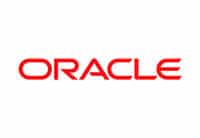The MySQL for Database Administrators enables DBAs and other database professionals to maximize their organization’s investment in MySQL. Learn to configure the MySQL Server, set up replication and security, perform database backups and recoveries, optimize query performance, and configure for high availability.
Get trained and certified to become an expert on the world’s most widely-used Oracle products.
Millions of professionals around the world take online or in-person Oracle training courses through Oracle University. Each course is designed to maximize your understanding of how to get the most out of Oracle technology you use every day.
Oracle training courses also prepare you to earn a well-respected Oracle Certification that increases your chances of getting hired. In fact, over 1.8 million working professionals have taken the time to study for and pass Oracle Certification exams that test and validate their technical knowledge. We offer specific training courses that increase your chances of passing related certification exams.
Oracle training courses will help you become more informed and more efficient so you can use Oracle products to drive measurable results. Get maximum ROI with your technology investment, stand out in a competitive global job market and increase your earning potential.
-
This Oracle WebLogic Server 14c: Performance Tuning Workshop Certification is a specialized qualification that demonstrates proficiency in optimizing the performance of Oracle WebLogic Server applications. It covers concepts like JVM performance tuning, garbage collection, and network optimization. It’s crucial for Industries relying on Oracle’s Java EE application server solution as it helps in efficient resource utilization, reduces downtime, lowers costs and improves application performance.
This certification equips IT professionals with the knowledge to diagnose and solve performance problems, appropriate configuration of server elements, and effectively manage and monitor resources, thus enhancing operational efficiency and productivity.
-
The Oracle WebLogic Server 14c: Administration I certification is a globally recognized qualification designed to validate an individual’s expertise in administering Oracle WebLogic Server solutions. It covers critical aspects such as creating WebLogic domains, deployments, and undertaking troubleshooting.
Gaining this certification verifies an individual’s aptitude in Oracle WebLogic Server’s core functionality and its application within enterprise environments. Many industries regard this certification highly as it helps in optimizing system performance, scalability, and reliability.
Thus, the certification is highly sought after by systems administrators, architects, and developers seeking to enhance their skills in leveraging Oracle WebLogic Server for building and deploying enterprise applications.
-
Oracle Cloud Infrastructure Architect Associate
Develop key insights on core constructs of Oracle Cloud Infrastructure (OCI) and discover how its globally distributed infrastructure components can transform your enterprise operations. Gain practical experience and confidence in using OCI to meet various business and technical requirements.
-
Oracle Technology Learning Subscription covers the entire Oracle Technology portfolio, including Java, JD Edwards, MySQL, Oracle APEX, Autonomous database, BI, OCI, and Database.
Oracle’s technologies evolve quickly, with new features and capabilities likely to be added over the course of twelve months. To make sure you don’t miss out on these exciting new features and capabilities, Oracle University training is designed to evolve at the same rate as our products.
The Oracle Technology Learning Subscription is a collection of web-based learning materials, including video content and services focused on Oracle Technologies, and may include content via Training on Demand (TOD) titles. Content is presented by various individuals, including Oracle architects, support engineers, and consultants.
-
Oracle Cloud Applications Learning Subscription provides one year of unlimited access to MyLearn, a rich learning platform, which provides a personalized learning experience with curated access to content across Oracle Cloud Applications and Industry Applications, including Oracle Fusion Cloud HCM, ERP, SCM and CX, as well as Industry Applications such as Energy & Water, Construction & Engineering, Retail and more.
The Oracle Cloud Applications Learning Subscription provides unlimited access to a rich learning platform including job role specific learning paths, courses, hands on labs, knowledge checks, certification preparation, and certification exams. All content is presented by experienced subject matter experts.
-
This class provides training applicable to Oracle E-Business Suite Releases 12.2. It does not provide training applicable to Oracle E-Business Suite Releases 12.0 and 12.1 (the architecture of Release 12.2 is different compared to Releases 12.0 and 12.1).
This E-Business Suite training teaches the essentials of installing and maintaining an Oracle E-Business Suite R12.2 system. Learn about the changes in Oracle E-Business Suite architecture and explore how to perform online patching using adop (the new patching utility).
-
The Oracle Cloud Infrastructure Operations Professional course caters to Administrators and Architects. It offers an in-depth technical introduction to essential OCI capabilities, covering various aspects such as using OCI CLI to create, discover, and terminate resources. Additionally, the course covers topics like creating shell scripts using OCI CLI, utilizing Oracle Resource Manager, provisioning a simple set of OCI resources with Ansible, managing custom images, and understanding Network Security Architecture, including Virtual Cloud Network (VCN), Load Balancer, and DNS.
Throughout the course, participants will engage in practical exercises, including provisioning and managing OCI resources, describing scaling options, handling billing and account management in the OCI Console, and troubleshooting OCI resources. They will learn to optimize performance, ensure security, and efficiently manage operational tasks within OCI
-
The Oracle Cloud Infrastructure DevOps Professional course is designed to equip DevOps Engineers and Developers with the skills and knowledge to effectively utilize (OCI) DevOps service: an end-to-end, continuous integration and continuous delivery (CI/CD) platform to build, test, and deploy their applications.
Through this course, you will gain a deep understanding of DevOps principles and learn how to leverage OCI for efficient automated workflows.
At the end of this training, you will be prepared to take on the Oracle Cloud Infrastructure DevOps Professional Certification.
-
The Oracle Cloud Infrastructure (OCI) Data Science Professional course is designed to equip Data Scientists, Machine Learning/AI Engineers with the skills and knowledge to effectively utilize OCI’s comprehensive suite of data science tools. Spanning the entire machine learning lifecycle, from establishing a data science workspace to deploying and overseeing machine learning models in real-world environments, this course enables participants to harness OCI’s robust capabilities. They will learn to construct, train, and deploy machine learning models, apply MLOps best practices, and integrate other OCI services to optimize their data science workflows.
By the end of this course, you’ll gain the necessary preparation to achieve the Oracle Cloud Infrastructure Data Science Professional Certification and advance your career in data science.
-
This course helps you learn how to gather and examine evidence. You will learn to solve case problems, diagnose their cause and find methods of resolution. Each of these practices challenges you to diagnose and troubleshoot the issue using the GoldenGate software.
-
This course is targeted at Developers and Database Administrators and begins with the concepts of a relational database and the SQL programming language. It includes writing queries against single and multiple tables, manipulate data in tables, and create database objects.
You’ll also learn how to create sequences, synonyms, indexes, and views, manage schema objects, and manage data using subqueries. Additionally, the course covers controlling User Access and managing data in different time zones.
-
This course is targeted at Database Administrators and begins with explaining the architecture of an Oracle Database instance and the tools used to access it. The course includes creating and managing a database, configuring and managing Oracle Net Services along with creating and administering pluggable databases (PDBs). You learn how to create and manage database storage, users, backup, and implement database security.
Additionally, the course covers protection of database against failures, loading, and transporting data.
-
The OCI 2024 Architect Professional Course is meticulously designed for seasoned cloud architects and IT professionals aiming to elevate their proficiency in Oracle Cloud Infrastructure (OCI). This advanced course offers an in-depth curriculum encompassing sophisticated OCI architecture, strategic design principles, and best practices for deployment and management.
Learners will engage in hands-on labs, ensuring practical application of theoretical knowledge through real-world scenarios. These labs are pivotal in cementing the skills required to architect and manage robust, scalable, and secure OCI environments.
The course is invaluable to learners, providing comprehensive insights into OCI’s advanced functionalities. By the end of the program, learners will possess the expertise and confidence to design and implement complex OCI solutions, making them highly capable and competitive in the field of cloud infrastructure.
-
The Oracle Private Cloud Appliance: Administration course teaches students about administration of the Private Cloud Appliance to provide Infrastructure as a Service. The course also teaches the policy driven provisioning of application servers, and management of the hardware configuration. The primary focus areas of this course include the administration of storage, network, memory, and CPU resources, and the management and monitoring of the Private Cloud Appliance components.
Learn To: Review the hardware and software installed and configured in the Private Cloud Appliance. Monitor the health of hardware. Allocate memory, CPU, network, and storage resources for effective virtualization support. Create, deploy, manage, and delete virtual machines. Configure the allocation of IaaS resources. Configure the Private Cloud Appliance Oracle VM environment in which virtualized servers run. Provide Infrastructure as a Service with Oracle Enterprise Manager Cloud Control. Manage the efficient allocation of appliance resources. Design an effective disaster recovery solution for the Private Cloud Appliance. Perform a selection of activities on a simulated lab environment. Benefits To You The Oracle Private Cloud Appliance delivers on the promise of simplified cloud management. The converged infrastructure solution consists of preconfigured Oracle servers, network, and storage hardware and software. With this engineered system you create and maintain a highly configurable pool of memory, CPU, and storage resources for running applications in a virtualization environment.
The administration procedures and techniques covered in this course enables: Cost reduction by eliminating multi-vendor integration. Eliminating the risk of cabling, hardware or software configuration errors. Reducing the amount of time taken to deploy new applications. Ensuring business continuity for IaaS consumers. This course teaches you to create, deploy and manage virtualized servers and configure the Private Cloud Appliance Oracle VM environment in which virtualized servers run.
-
Oracle Cloud Infrastructure Foundations
This course will help you in developing a strong foundation in cloud computing, core concepts and features of Oracle Cloud Infrastructure (OCI).
-
Developing Web Applications with JavaScript, HTML5, and CSS
Develop front-end web application using JavaScript, HTML5 and CSS. Course starts with the coverage of web application fundamental concepts, JavaScript language syntax, construction user interfaces using HTML5 and CSS, building application logic using JavaScript, and eventually progresses to advanced topics such as using JavaScript to interact with server-side components, such as WebServices and WebSockets.
-
Java SE 17 Developer
This course is intended for students with some programming experience and is a comprehensive training for the Java programming language.
-
This Oracle WebLogic Server 14c: Troubleshooting Workshop course teaches you how to monitor and tune Oracle WebLogic Server 14c. The lecture content is suitably reinforced with hands-on practices.
-
This Oracle WebLogic Server 14c: Administration II training is a continuation of Oracle WebLogic Server 14c: Administration I. It teaches you how to perform important administrative tasks, employing best practices that enable you to make the most of your WebLogic applications.
-
The Oracle WebLogic Server 14c: JMS Administration certification validates a professional’s skills to configure, manage, and tune JMS resources for Oracle WebLogic Server. JMS stands for Java Message Service, a messaging standard that allows Java EE applications to communicate with other messaging systems.
With this certification, individuals can demonstrate their understanding of deploying JMS in a WebLogic domain, configuring message-driven beans, and tuning JMS for optimized performance. Industries use this certification to ensure their IT professionals have the required knowledge and skills to effectively implement and manage the JMS functionalities in Oracle WebLogic Server, improving productivity and communication across different systems.
-
Oracle Cloud Infrastructure provides a number of Software Development Kits (SDKs) and a Command Line Interface (CLI) to facilitate development of custom solutions. In this course, learn to install the Python SDK for OCI along with OCI CLI and write code to deploy various core OCI Services.
-
In this course, you will learn to install the Go and Typescript SDKs for OCI and write codes to deploy various core OCI Services.
-
Ansible provides you a solution to the tedious task of administering a server fleet. Ansible provides a platform for configuring and managing compute instances.
In this course, you will learn the basics of working with Ansible in OCI, including installation and configuration. Also, you will discover the benefits of Infrastructure as Code (IaC) via Ansible, understand and create the building blocks for Ansible to be used in the form of playbooks. Lastly you will be able to create playbooks and configure and manage resources on OCI.
-
Architect a cloud-based infrastructure using Oracle Cloud Infrastructure services. Building on your skills obtained from the Oracle Cloud Infrastructure Administration Essentials course, explore deeper into the Oracle Cloud Infrastructure services to design and implement a secure and scalable cloud solution that meets HA and DR requirements. Design secure networks with disaster recovery options, and explore database capacity planning and advanced database features on OCI. Also explore the gamut of new services on OCI such as Streaming, Events, and Functions.
-
Develop key insights into key concepts and features of Oracle Cloud Infrastructure (OCI). Identify how the OCI’s global distribution of infrastructure components can assist your enterprise, learn to extend your IT infrastructure with highly customizable Virtual Cloud Networks (VCN) and connectivity services. With network in place, launch your first compute instance, and define storage volumes.
Also learn to deploy a highly available web application utilizing services like load balancer and distributing infrastructure across multiple availability domains. Discover the various Oracle Database options available on OCI from VM DB to Autonomous Database to Bare Metal DB. With these OCI components in place, get insights to securing OCI, DNS, and understand OCI WAF capabilities and architecture.
-
The Transition to Oracle Solaris 11 training and certification course will give you a detailed overview of the transition to Oracle Solaris 11 training builds on your system administration experience with Oracle Solaris 10.
-
Oracle VM Server for x86: Implementation Ed 2 training course enables you how to enhance cloud effectiveness with rapid deployment of cloud resources and applications. During the class, you will gain how to administer, redistribute, troubleshoot and protect Oracle VM resources to ensure seamless and continuous access of your applications.
-
Oracle VM training is meant for systems administrators, as well as data center managers. The training is about virtualization technology in particular. Students understand how to use Oracle VM Server for x86, as well as Oracle VM Manager for building virtualization platform. You gain proficiency in installing and configuring Oracle VM Server for x86. The course makes candidates capable of using simple, as well as high-level cloning to develop virtual machines.
Participants also learn how to administer the lifecycle of virtual machines. They become proficient in preparing network interfaces and virtual disks. In addition, students gain knowledge about concepts like virtual machine administration, storage and network configuration, and repository and pool creation.
-
This is an advanced-level course that offers in-depth hands-on experience to candidates. The training provides exposure to high-level system administration tasks. In other words, it primarily polishes the skills learnt in the Oracle Solaris 11 System Administration course.
-
This OL8-SA1: Oracle Linux 8: System Administration I course is first in a series of three Oracle Linux 8 System Administration courses that covers the system administration tasks. The lab environment is validated against the latest Oracle Linux 8 release.
-
This course offers the all right information to begin your journey with Oracle Coherence Cloud. This course will take you through some basics of networking, which is required to learn the concepts of Coherence Cloud. You will be exploring the capabilities and architecture of Coherence Cloud. You will learn to provision Coherence Cluster in a private and public subnet. Explore to use Resource Manager to view the cloud resources of a cluster. Learn to delete the cluster service. You will also learn to modify the operational override file and scale-out the cluster.










